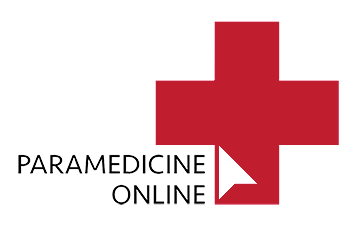The Daily Tasks of a Medic
The Daily Tasks of a Medic.
And how APC training prepares you for life on the road as a first responder!
Have you ever wondered what the daily tasks for a medic/paramedic would be? There are so many important tasks that a medic undertakes for each call-out, it would be impossible to simply list them all. Instead, we are going to summarise them, and take a closer look at how your training prepares you for each task.
While there are endless variations between each patient (and one of the benefits of this role is that every day is different) the role of a medic can be summarised in 5 simple steps: Arriving on scene, patient interaction and communication, patient assessment and clinical care, patient transportation (if required) and then self-reflection and personal growth.
Everything that you learn in your 18-24 months of studying the Diploma of Emergency Health Care can be attributed to one of those tasks.
You will study 17 units within the Diploma, and here is how they fit into the bigger picture of daily tasks:
1. Arriving on Scene.
- HLTINF001 – Comply with Infection Prevention and Control Policies and Procedures
- HLTOUT008 – Manage a Scene
- HLTOUT009 – Manage the Scene of a Major Incident
2. Patient interaction, communication, response, and management.
- HLTOUT010 – Communicate in Complex Situations to Support Health Care
- CHCCCS020 – Respond Effectively to Behaviours of Concern
- CHCDIV001 – Work with Diverse People
- CHCLEG001 – Work Legally and Ethically
3. Patient assessment and clinical care.
- HLTAAP002 – Confirm Physical Health Status
- HLTOUT004 – Assess and Deliver Basic Clinical Care
- HLTOUT005 – Assess and Deliver Standard Clinical Care
4. Patient movement and transportation.
- HLTWHS002 – Follow Safe Work Practices for Direct Client Care
- HLTOUT001 – Implement Safe Access and Egress
- HLTOUT007 – Transport Non-emergency Patients Under Operational Conditions
- BSBMED301 – Interpret and Apply Medical Terminology Appropriately
5. Self-reflection, improvement, and personal growth.
- CHCPRP003 – Reflect on and Improve own Professional Practice
- HLTWHS006 – Manage Personal Stressors in the Work Environment
- BSBLDR301 – Support Effective Workplace Relationships
As you can see, the tasks of paramedics are much more than what you see on tv! Medics provide a response to medical emergencies, assess and attend to patients with life-threatening and non-life-threatening injuries, and transport patients to health facilities such as hospitals. It’s no wonder they are admired by so many, because they provide a vital role in our community.
Study pre-hospital emergency health care qualifications online at APC; with the aid of clinical workshops as well as online and phone support from trainers and educators. Enjoy unlimited access to a student success team who are always ready to help and assist. Although paramedical courses can be studied online; APC fosters a vibrant and passionate community that encourages students to engage and help one another.
Choose from three pre-hospital emergency health care qualifications.
HLT51020 – Diploma of Emergency Health Care
HLT41120 – Certificate IV in Health Care
HLT31120 – Certificate III in Non-emergency Patient Transport


